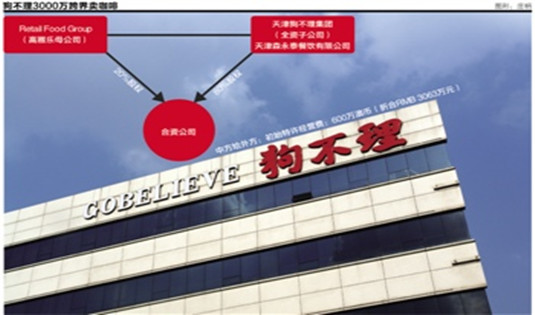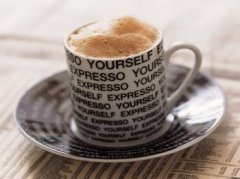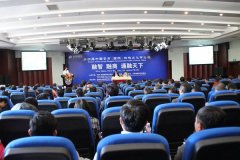GouBuLi cross-border coffee selling 30 million won the management right of Colorado in China.

After two years of negotiations, the wholly owned subsidiary of Tianjin GouBuLi Group won the franchise of Colorado Coffee in China for A $6 million. But in the Chinese market, where coffee consumption is growing rapidly, mature brands such as Starbucks and Costa have been dominant for a long time. From selling steamed buns to selling coffee, Tianjin GouBuLi's cross-border operation is facing a test.
If one day, the snack combination of coffee is no longer bread and dessert, but steamed buns, consumers may not be surprised, because Tianjin GouBuLi Group Co., Ltd. (hereinafter referred to as "Tianjin GouBuLi") has become the new "host" of Gaoliya Coffee in China.
According to a report in Tianjin Daily on January 22, Tianjin GouBuLi Group has officially announced that it has successfully won the permanent right to use Gloria, Australia's largest coffee chain, in China. The latter will become a "new magic weapon" for GouBuLi to expand China's local catering market.
Zhang Yansen, chairman of Tianjin Goubuli Group, said that the company began initial contact with Colorado Coffee International Co., Ltd. as early as the end of 2012, and finally signed the intellectual property license agreement on December 25, 2014 after nearly two years of arduous negotiations. Tianjin Senyongtai Restaurant Co., Ltd., a wholly-owned subsidiary of GouBuLi Group, has become the only permanent brand user of the Colorado brand in China.
Although they are in the same food industry, there is a big difference between steamed stuffed bun and coffee in terms of format attributes, mode of operation and supply chain characteristics, which makes the outside world have doubts about Tianjin Gouli's cross-border move.
Zhang Yansen's explanation is that China's coffee consumption market is growing at about 15% a year, much higher than the 2% annual growth rate of the international market. According to authoritative research reports, China's coffee consumption is about 70 billion yuan in 2012, and will exceed 150 billion yuan in the next five years. "it is because it is optimistic about the future of the coffee market that GouBuLi Group is determined to enter this field."
However, Wang Zhendong, president of the coffee industry association of the Shanghai Food Association, told the 21st Century Economic report that although the total demand for coffee in China is expanding, a large number of chain coffee brands represented by Starbucks and COSTA have already laid out the market ahead of schedule, which is a great challenge to the newcomers.
The "smoke bomb" ignored by the dog
Rumors of an affair between Tianjin GouBuLi and the coffee industry spread as early as 2014. In January 2014, Tianjin GouBuLi revealed to the public that the company would intend to acquire an American coffee giant. The American company being discussed is a very mature multinational chain with branches in more than 40 countries and regions, including Europe, the United States and Southeast Asia. Acquisitions can effectively avoid a series of problems and risks. The use of the enterprise's existing business network and platform can promote GouBuLi to successfully go abroad, drive high-quality local Chinese food abroad in the shortest possible time, spread the essence of Chinese food culture, and achieve a win-win situation between enterprise development and the export of Chinese culture.
The news attracted so much market attention at the time that the Wall Street Journal even wrote: "consumers should stop eating bagels and doughnuts." Chinese steamed buns may become a new favorite for American breakfast if Gouli gets what he wants. "
At the time, US media analysts believed that Starbucks was too big to buy it, and the most likely was the US coffee chain Dunkin' Donuts, which specialises in doughnuts and coffee and has restaurants in 32 countries. But Donndole has about 7015 franchise stores in the US and 3068 stores outside the US.
At the time, neither Tianjin GouBuLi nor Downdole had a formal response, but according to 21st Century Business Herald, Dunkin' Brands Group Inc, the parent company, had a market capitalization of $5 billion in 2014. This is undoubtedly a "snake swallowing elephant" for Tianjin GouBuLi, which has an annual turnover of only 1 billion yuan.
According to the data, Tianjin GouBuLi, which was originally a state-owned enterprise, carried out enterprise restructuring in 2005, and the company later became a mixed ownership enterprise. On July 4, 2007, the registered capital of Goubuli Group became 75 million yuan, Tianjin Tongrentang [- 1.8% fund research report] accounted for 28.6%, and the current chairman Zhang Yansen accounted for 71.4%. In 2014, GouBuLi's operating income was about 1 billion yuan.
At that time, when talking about the causes of overseas mergers and acquisitions, Zhang Yansen said that in the process of participating in many trips to foreign countries to inspect catering market activities organized by national trade associations, and in the process of GouBuLi being invited to various countries for food and beverage cultural exchanges, he intuitively felt that the market share of Chinese food in foreign medium and high-grade business catering markets was too small, and most of them were mainly small family shops, which were not very popular among the local mainstream consumer groups. It affects the world's impression of Chinese food, which inspires GouBuLi's morale to go out.
However, in the final outcome, the original mentioned "acquisition" has become a "joint venture", and the acquisition land has also changed from "the United States" to "Australia", which seems to be somewhat contrary to the original intention of Tianjin Gouli.
It is understood that the Colorado coffee brand originated in Chicago, USA, and was headquartered in Sydney in 1979. It is now the largest coffee chain brand in Australia and one of the top five coffee chains in the world. Its retail products include more than 60 kinds of coffee beans, coffee capsules, all kinds of hand-made hot and cold coffee, pastries and goods. Colorado Coffee has more than 1000 stores in airports, shopping malls and communities in 42 countries and regions.
30 million won the right to operate in China
Since Retail Food Group, to which Gloria belongs, is a listed company in Australia, the latter disclosed in a notice issued by the Australian Stock Exchange that it had reached a cooperation agreement with Tianjin Senyongtai Catering Co., Ltd. to form a joint venture in which the Chinese side would hold 80 per cent of the shares and the foreigners would hold the remaining 20 per cent.
The initial franchise fee of 6 million Australian dollars (30.63 million yuan) paid by Tianjin Gouli to foreign parties has been fully accounted for. The Chinese side will be responsible for the investment of the joint venture company, and the income will be retained in the joint venture company.
It is worth pointing out that Tianjin GouBuLi is now widely believed to be the only operator of Colorado Coffee in China, but in fact this is not the case.
21st Century Business Herald learned in an interview that Gloria Coffee currently licenses three operators in Chinese mainland, one in Shanghai and the other in Sichuan.
"Tianjin GouBuLi has won the right to operate in areas other than Shanghai and Sichuan Province." A person in charge of Hanmei Restaurant, the operator behind Shanghai Colorado Coffee, told the 21st Century Economic report.
Although Colorado Coffee currently has more than 1000 stores around the world, the number of stores of the brand in China is pitifully small, with only 12 in Shanghai, Sichuan and Tianjin, while Tianjin GouBuLi has only 2 of the 12.
Wang Zhendong said in an interview: "at present, coffee chains are almost in the Red Sea stage, and gold stores in large and medium-sized cities have long been carved up by Starbucks, COSTA, Flavor and other companies; at the same time, coffee is a cultural export product, and compared with the United Kingdom and the United States, the new coffee culture represented by Australia has relatively weak input to the Chinese market, which will also make it more difficult to operate."
In the latest round of expansion plans for the Chinese market, Starbucks, which already has more than 1500 stores in China, said it would double the number of stores in the Chinese market in the next five years. In fiscal year 2014, Starbucks opened an average of one new store a day in China, while the 2015 goal is to be more "aggressive" and will open one store every 18 hours.
The British coffee giant COSTA has been targeting Starbucks since it entered China in 2008. In recent years, it has been adopting a very active expansion strategy, adopting a "close" strategy with Starbucks in terms of location, and plans to open 2500 stores in China in 2018, accounting for 1/3 of China's market share. Paul Smith, president of COSTA Asia Pacific, even shouted the slogan "pack up and go home if you can't kill Starbucks."
In the covetous competitors, Tianjin dog regardless of how to kill a blood road, will become a big test of its cross-border operation.
Important Notice :
前街咖啡 FrontStreet Coffee has moved to new addredd:
FrontStreet Coffee Address: 315,Donghua East Road,GuangZhou
Tel:020 38364473
- Prev

Animal Cafe Tokyo is very popular with owls, goats and rabbits
Chinanews.com, Jan. 22-according to the Central News Agency on the 22nd, cat cafes are not fresh in Tokyo, Japan, and animal fans can also go to rabbit coffee, goat coffee and even owl coffee shops. If you want to drink coffee and pat the owl at the owl store, you must wait in line an hour before the store opens. If you are late and do not show up at the scheduled time, you will not only waste 2000 yen.
- Next

The 4th China Mang City (International) Coffee Culture Festival Held
International Coffee Business Forum
Related
- Can I make coffee a second time in an Italian hand-brewed mocha pot? Why can't coffee be brewed several times like tea leaves?
- Hand-brewed coffee flows with a knife and a tornado. How to brew it? What is the proportion of grinding water and water temperature divided into?
- What is the difference between Indonesian Sumatra Mantinin coffee and gold Mantinin? How to distinguish between real and fake golden Mantelin coffee?
- What does bypass mean in coffee? Why can hand-brewed coffee and water make it better?
- Unexpected! Ruixing Telunsu lattes use a smoothie machine to foam milk?!
- % Arabia's first store in Henan opens into the village?! Netizen: Thought it was P's
- Does an authentic standard mocha coffee recipe use chocolate sauce or powder? Mocha Latte/Dirty Coffee/Salty Mocha Coffee Recipe Share!
- What is the difference between Vietnam egg coffee and Norway egg coffee? Hand-brewed single product coffee filter paper filter cloth filter flat solution!
- What is the difference between sun-cured and honey-treated coffee? What are the differences in the flavor characteristics of sun-honey coffee?
- How to make Italian latte! How much milk does a standard latte use/what should the ratio of coffee to milk be?

